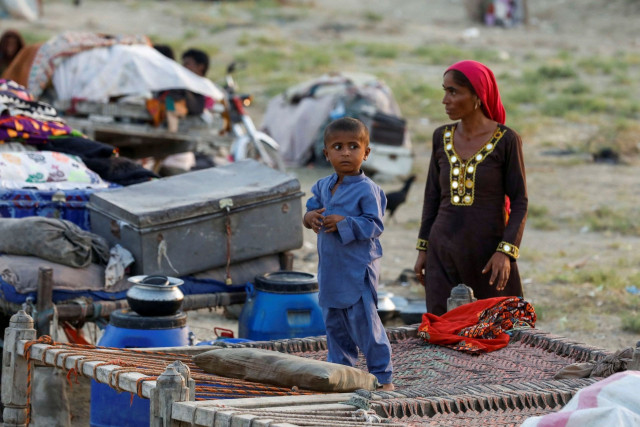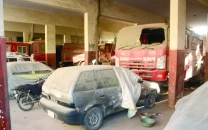Policy draft ‘hurried, not holistic’
Stakeholders criticise document for not being inclusive, representative

If the provincial government is serious about making the Sindh Resettlement and Rehabilitation (R&R) Policy an across the board document, then the consultative workshop in Hyderabad on Thursday received a thumping 'negative' from the stakeholders.
The representatives of academia, farmers and civil society pointed out an array of flaws and shortcomings in the draft and viewed the policy-making exercise as impetuous. Environment, Climate Change and Coastal Development Secretary Agha Wasif Abbas and Planning and Development Secretary Faisal Ahmed Uqaili, who chaired the event, told participants that the government would collect recommendations till February 19.
However, the participants expressed their disapproval over the deadline. "If the deadline hasn't been given to secure a loan from the World Bank at the earliest, it should be stretched at least for some more months to take the people on board," suggested a participant. The principal goal of the policy is to avoid and/or minimise displacement and resettlement of the affected people by exploring alternative options like adequate compensation, resettlement and rehabilitation assistance.
Through the policy the government will try to ensure that such communities "can at least maintain their pre-displacement socio-economic status or improve their overall well-being". Dr Ahsan Kamal of Quaid-eAzam University, Islamabad, said the World Bank's resettlement policies often receive criticism globally, even from officials of the bank.
He contended that without addressing the defects of the Land Acquisition Act (LAA), 1894, the R&R policy is likely to flounder with consequences even for the beneficiaries. "Without keeping in view the case studies of the previous failed projects like the Left Bank Outfall Drain (LBOD) and Tarbela Dam, a new R&R policy won't give desired results," he argued. "In Pakistan we often get to see the project affected people and not the project beneficiaries." He reiterated that the policies of the international financial institutions and the government with regard to R&R of the affected people mostly come a cropper.
Syed Zainuddin, a lecturer at LUMS, said that the R&R was seemingly lacking in the four fundamentals of policy making. He also argued that amendment in the LAA 1894 should precede the policy making. He, like more than a dozen other participants, opposed the February 19 deadline. Sindh Chamber of Agriculture's secretary Zahid Hussain Bhurgari deplored that the farmers, who constitute over 70 per cent of the rural population, were not being properly consulted.
Noor Bajeer, the executive of Civil Society Support Program, pointed out that the policy does not provide a framework of obtaining consent of affected communities in the land-taking and resettlement process. Sindh University Sociologist Dr Ameer Ali Abro drew attention towards the absence of a baseline study of the needs assessment before embarking on the policy preparation. An activist from Badin district pointed out that when the peasants change the employing landlord, they have to vacate their homes which were built on the land of their previous employing landlord.
She asked how such landless peasants would be supported under that policy. Interestingly, the use of prefabricated houses, which may suit the peasants who often relocate, did not come under discussion.



















COMMENTS
Comments are moderated and generally will be posted if they are on-topic and not abusive.
For more information, please see our Comments FAQ